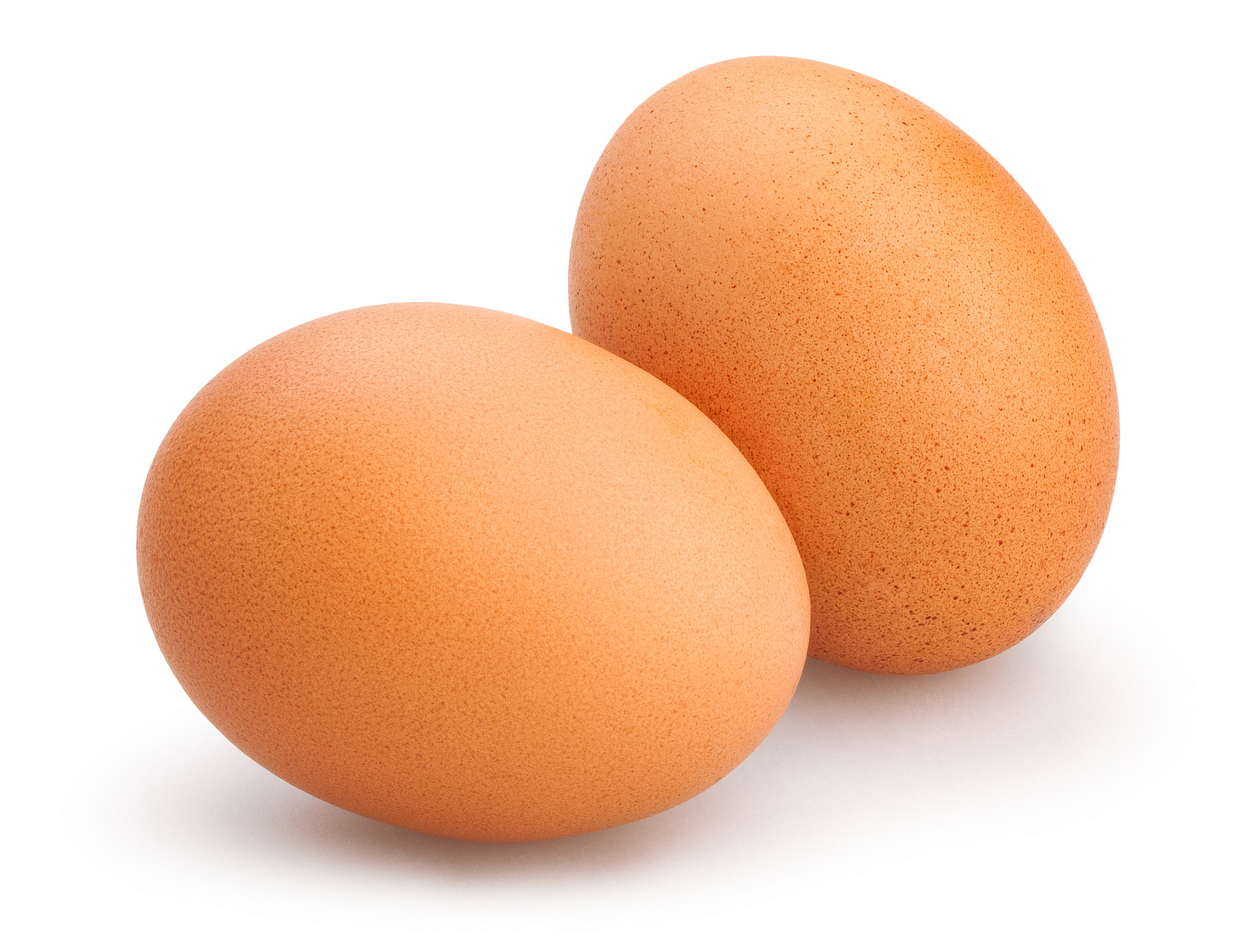A tale of two eggs
Fake food vs. real food
True story: When our oldest was a toddler, we started buying eggs from a local farm instead of the grocery store. This child devoured eggs. He liked them scrambled, fried, poached, and especially when we cooked them “in-a-hole.” One time, out of convenience, we bought a carton of supermarket eggs instead of the usual farm- egg variety. The kid took one bite of breakfast and said:
“What’s wrong with these eggs? They don’t taste like anything.”
Though they look very much alike, all eggs are not created equal. There is something seriously wrong with our food system when even the youngest of eaters can taste the difference.
The Conventional Egg
Typical supermarket eggs come from mass-produced chickens that are caged indoors for most of their lives. These birds eat corn- and soy-based feed that likely contains glyphosate residue. They are given antibiotics routinely to prevent illness. The eggs they lay have pale-yellow yolks with a mild, unremarkable flavor. Even when labeled all-natural, cage-free, free-range, or other vague and undefined terms, this food is the product of an industrial agriculture operation. When analyzed for nutritional contents, commercial eggs have a different fatty acid profile (higher in omega-6s relative to omega-3s) and lower levels of vitamins A, E, and D.
The Pastured Egg
When chickens are raised outside and rotated onto sections of fresh pasture, they eat a biologically appropriate diet of bugs, worms, seeds, and grass, with supplemental feed and add-ins like oyster shells provided as needed. This method helps the birds to stay healthy and produce eggs with deep orange yolks that have a richer taste and contain high levels of essential nutrients. When you eat pastured eggs, you’ll get more omega-3s as well as more of the fat-soluble vitamins A, E, and D - while being less likely to ingest antibiotics or herbicide residue. As an added benefit, chickens raised this way help to restore and fertilize pasture for the cattle, pigs, goats, or sheep that will graze there next.
Eggs like these are found not in national grocery store chains, but at farm stands, farmers markets, food co-ops, in CSA (community-supported agriculture) boxes, or from your neighbor’s backyard. Lately, a lot of new egg brands are appearing on grocery store shelves, and it’s important to understand that the term “pastured” is not officially defined or regulated. Ideally, you want to find out who is raising the hens and what practices they are following, or else you may be paying a premium for no added health benefits.
Is It Real or Fake?
Although any egg is better than no eggs, this comparison of two vastly different foods is a microcosm of what we believe is all-wrong with industrial agriculture. One food is the real thing, while the other is an impostor that looks the same but delivers a fraction of the nutrition. By switching how we source this one staple, maybe this health-minded community can lead a movement back to traditional and authentic food.
Where do you find high-quality eggs? Tell us in the comments here or send a message in the Senza app!



